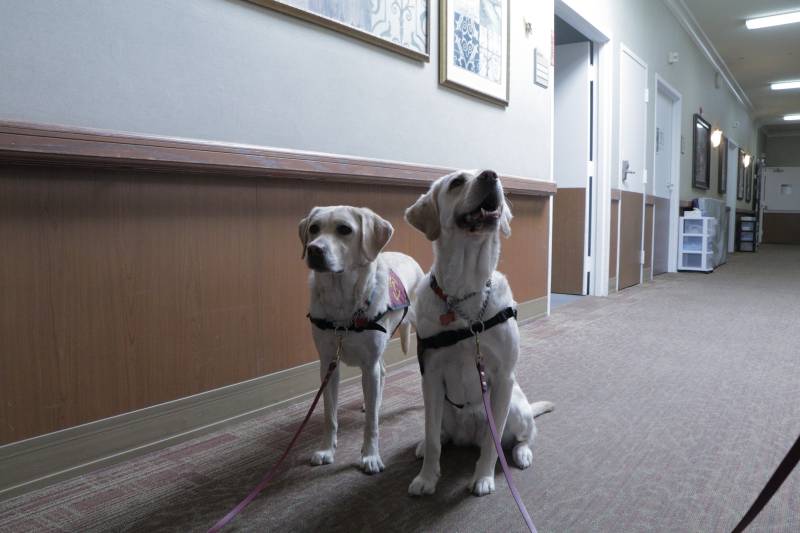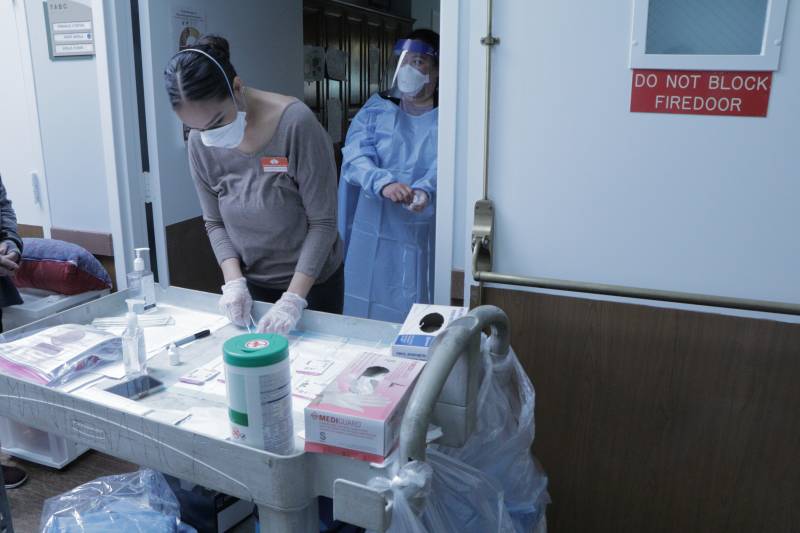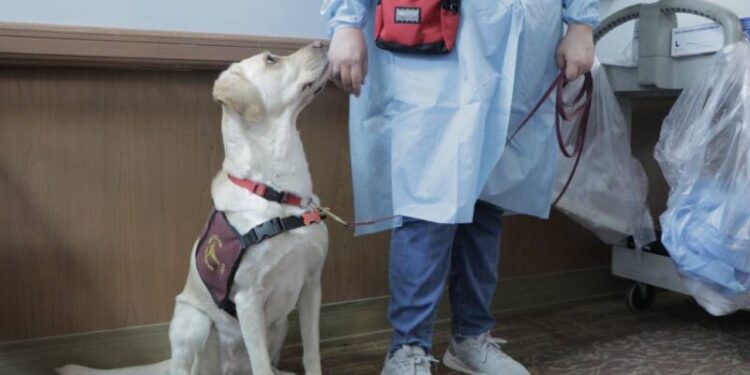The scent wheel is like a multiple-choice test with various odors. The device is a training tool that can desensitize dogs to non-target odors they may encounter during searches. During eight weeks of initial training, Scarlett and Rizzo correctly identified the socks of COVID-positive patients nearly all the time.
During the fall of 2021, the dogs sniffed for COVID at schools around San Francisco. They screened students before and after proms, and the canines were helpful in special needs classrooms where students often struggled to self-swab. Similar efforts have unfolded in Florida, Hawaii and Massachusetts.
Researchers across the world are training dogs to detect COVID. A team in France and scientists in the United Arab Emirates worked with dogs who identified COVID in sweat samples collected from people’s armpits. In Finland, four dogs were trained to detect COVID at the airport using skin samples collected from various body parts.
 White labs Scarlett and Rizzo have been trained by Bay Area nonprofit Early Alert Canines in a laboratory setting to detect odors specific to COVID-19. (Courtesy of Marin County Health and Human Services)
White labs Scarlett and Rizzo have been trained by Bay Area nonprofit Early Alert Canines in a laboratory setting to detect odors specific to COVID-19. (Courtesy of Marin County Health and Human Services)
Currently, dogs are trained to monitor patients with diabetes. If a patient’s blood sugar drops or spikes, canines alert owners with a paw or a nudge to head off a medical emergency. However, as this NPR investigation highlighted, “The diabetic alert dog industry is unstandardized and largely unregulated. And the science on a dog’s ability to reliably sniff out blood sugar changes is, at best, inconclusive.”
As with COVID sniffers, more research is needed before people can fully depend on dogs.
However, Glaser hopes canines can eventually sniff for influenza or norovirus at nursing homes. She says sweeping a facility with dogs is much cheaper than traditional testing, requires fewer staff and eliminates the majority of plastic waste.
“You know it may be that this has been under our noses, so to speak, and we haven’t even recognized it,” said Dr. Matt Willis, public health officer for Marin County.
 Medical workers check confirmatory COVID tests to ensure the pilot program data reflects accurate results. (Courtesy of Marin County Health and Human Services)
Medical workers check confirmatory COVID tests to ensure the pilot program data reflects accurate results. (Courtesy of Marin County Health and Human Services)
He says the bias toward tech solutions prevented people from tapping canines earlier in the pandemic. Willis envisions a day when all public health departments train canine units just like the police.
“We could imagine dogs moving from facility to facility or school to school, and just screening everyone in a matter of minutes,” said Willis.
Sometimes Scarlett and Rizzo — the COVID dogs — can detect the virus a day or two earlier than a traditional test will register as positive. But overall, the canines are still not quite as sensitive as lab tests. As soon as they are, the state plans to scale canine diagnostics for COVID across California.



















